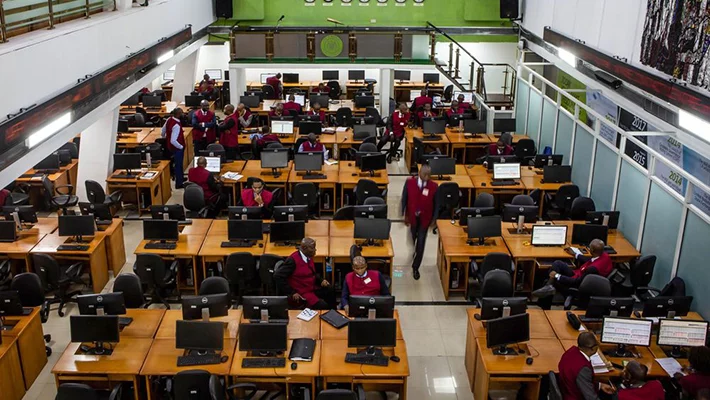Analysts predicted that the Nigerian stock market will remain resilient this year, despite the trend of market dip which usually occurs in election years.
Speaking at the bi-monthly forum of the Finance Correspondents Association of Nigeria (FICAN) in Lagos, head of Investment Research, Parthian Securities, Oluwaseun Dosunmu said the stock market is primarily dominated by domestic investors, and the equity space is not prone to capital flight.
Speaking on the theme: ‘Assessing Nigeria’s Financial Sector and Outlook for the Economy in 2023’ Dosunmu said that “in 2019 our market was largely driven by domestic players because the foreign investors decided to leave, which means that domestic institutional players like the Pension Fund Administrators (PFAs) and the likes.
“The interesting thing is that if the domestic players are moving the market, that means the market will not be subject to foreign shocks. It is a good thing and it also has its negative side, but one benefit is that whenever anything happens in the global economy the impact on our market is always minimal.”
According to him, historically, the stock market is negative every election year from the start of 2019, we had only three months in the whole year that closed positive. But that is not the case in this election year.
He emphasised that the narrative had changed, and the focus for investors in 2023 would be to focus on specific sectors, and focus on specific stocks, that would give them the kind of return that they wanted.
On her part, head, Global Markets at Parthian partners, Ronke Akinyemi noted that while the removal of subsidy would be a positive for the government, the process should be gradual.
She, however, noted that while the removal of fuel subsidy would lead to an improvement in Nigeria’s foreign reserves and reduce the burden on the fiscal side, it would also lead to increased cost of living.
“If subsidy is removed, there is likely going to be increased social unrest. We have not even seen anything and we have already seen unrest in little bits and pieces. But on the flip side, if subsidy is removed, we expect our reserves will improve,” she said.
She also said even if the subsidy would be removed, it should be staggered as opposed to removing it 100 per cent, saying, “So, let’s say 25 per cent, wait a few months see how that pans out, take out more so that the effect is not fully felt by the most vulnerable even though it will be fully felt because it is staggered.”
Analysts at Coronation Securities Limited said, “In order not to become overvalued, a market’s principal listed companies need to increase earnings per share at least in line with market performance. And so long as: the market is not overvalued; there is a reasonable expectation of earnings growth; and other mainstream assets (i.e. T-bills and Naira-denominated bonds) do not become much more attractive than they are currently, then it is reasonable to expect that the equity market will perform well.”
Also, Cordros Securities Limited added that “we posit three scenarios for equities market performance this year; base, bear, and bull cases. In the base case, which is the scenario that we believe is most likely to play out, we expect a combination of positive corporate earnings, a muted uptick in fixed-income yields, and investors’ positive reactions to the election’s outcome, will support market performance and lead to a 3.5 per cent return for 2023 full year.
“In the bear case scenario, we assume a blend of significantly weaker corporate earnings and dividend pay-outs, a higher-than-anticipated uptick in fixed income yields, and a sudden violent turn in 2023 election activities to drive apathy for stocks, to pressure the market performance.
“Finally, the bull case scenario expects the global economy to rebound within the year, and capital inflows strengthen as investors hunt for alpha. However, we still expect a disconnect between company fundamentals and valuation multiples.”





